Posted on 9/29/2022
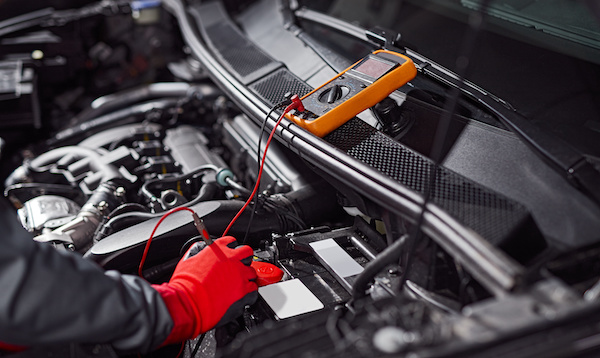
Your car battery is similar to the heart of the body. It needs to beat, or be charged, to provide electricity to start your engine, keep it running, and power your other electrical accessories. If the battery is dead, you can expect nothing to work. Car batteries are just like your other electronic accessories – they weaken and can stop working over time. Most automakers recommend replacing your car battery every 3-5 years. Some batteries can last longer than others. Being able to spot the signs of a failing battery is key to preventing yourself from getting stranded in the future. Let’s take a look at some of the symptoms of a dying vehicle battery. What Are the Signs of a Dying Battery? Batteries don’t usually stop abruptly. It may give off the following indicators before going out: Slow-to-Start Engine: If you notice that it takes a longer time for your engine to turn on, it could mean your battery has weakened. Heavy Corrosion on Terminals ... read more
Posted on 8/26/2022
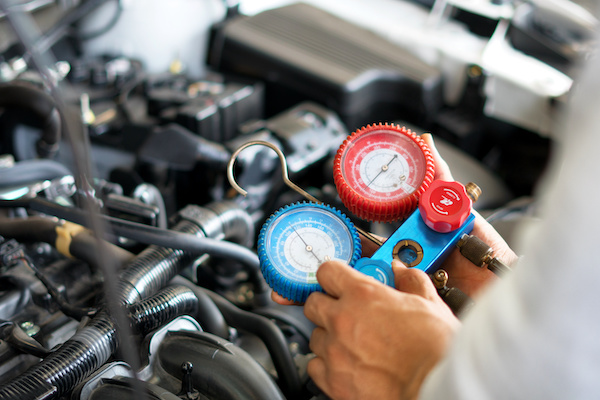
If you own a newer model vehicle, then there’s a good likelihood that your car uses R-1234YF as its A/C refrigerant. Cars are constantly changing with newer and better technology, and that includes the auto air conditioning system too. For several years now, all vehicles have had this new air conditioning technology. R-1234YF is a synthetic refrigerant with a very low global warming potential, which means it has a low impact on polluting the atmosphere. It combines three elements: hydrogen, fluorine, and carbon. Before the innovation of R-1234YF, vehicles used R12 or Freon AC refrigerants. In the 90s, R-134a refrigerants replaced the R12. And now, R-1234YF has proven to be the best refrigerant when it comes to being eco-friendly. R-1234YF Versus R-134a Refrigerants The biggest differences between R1234YF and R134a are the size of service couplers and the hose connections. As you can imagine, the shift in the industry has caused many industry professional ... read more
Posted on 7/27/2022
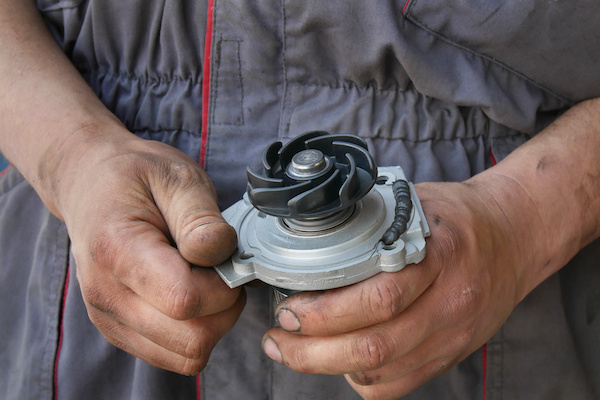
If you're driving and your car starts making strange noises, it could be a sign that there's something wrong with your water pump. Here are 6 symptoms of a failing water pump to watch out for. 1. The Engine Starts to Overheat One of the first and most common signs that your water pump is failing is when your engine overheats more frequently. This is because the water pump is responsible for circulating coolant throughout the engine. 2. There's No Coolant in the Reservoir If you notice that there's no coolant in the reservoir, it's a symptom of a failing water pump. It's possible that the water pump has failed, preventing coolant from circulating and eventually boiling off. 3. Smoke Coming From the Engine If you notice smoke coming from your car's engine, it could be a symptom of a failing wate ... read more
Posted on 6/27/2022
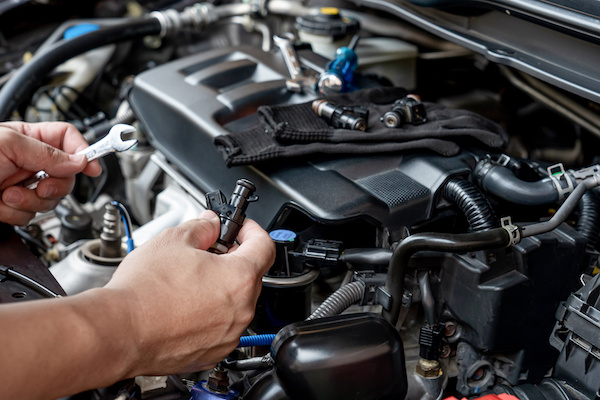
What Are Fuel Injectors? The fuel pump in your vehicle feeds gasoline to the fuel injector. Fuel is injected/sprayed into the intake manifold at a precise angle by the fuel injector. Air and gasoline combine in the intake manifold. In the combustion chamber, the air-fuel combination is compressed, starting the chemical process that powers your engine. Why Does Your Vehicle Need Fuel Injectors? Engines outfitted with fuel injectors have a better power output than carburetted engines. As a result, fuel injectors are one of the most significant technological advancements in the automobile industry. Common Symptoms Associated With Bad Or Clogged Fuel Injectors The Engine Misfires Your vehicle's engine may misfire due to dirty fuel injectors. The motor may splutter because of this situation, creating vibrations throughout the car. When a defective fuel injector upsets the proper balance of fuel and air entering the engine, misfires can occur. Rough Idling Does your car splutter ... read more
Posted on 5/26/2022
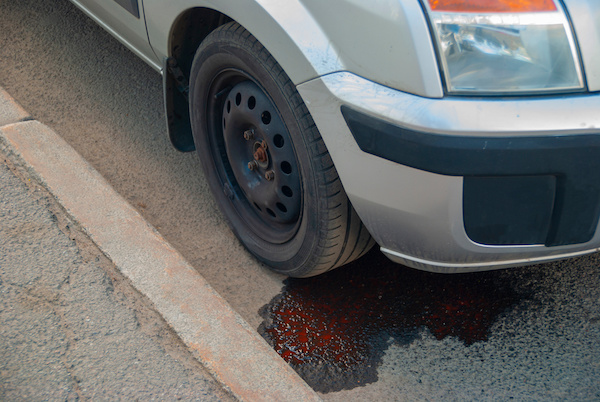
Various fluids can leak from your car. While some leaks may not be troublesome, some can cause serious consequences, such as steering issues and engine failure. It's important to know the various types of fluid leaks to help you identify the fluid leaking from your car and why. Here are some of the various fluid leaks that your vehicle may leak: Coolant Leak Coolant leaks tend to be orange, pink, or bright green. A coolant leak protects your car from overheating and grinding, and therefore, this fluid's leakage can be catastrophic. However, it is normal for old cars to have coolant leakage, but modern cars are designed to prevent such leaks. Oil Leak Oil leaks appear brown or black. It can occur due to seals in the engine, valves of oil pans, or a degraded engine gasket. The color change may be due to usage, aging, or elements such as debris or dust. Brake Fluid Leak If you notice that your car is leaking a bright-colored fluid with a fishy smell, the leak is likely a bra ... read more
Posted on 4/28/2022
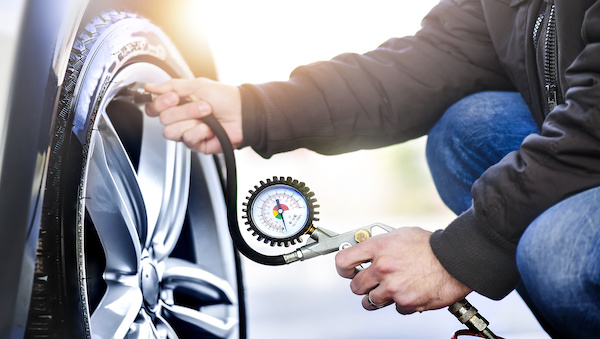
Tires are an important part of your car, and need proper care and maintenance to keep your vehicle working as intended. By following these simple steps, maintaining your tires will be an easy feat. Rotate your tires Tire rotation is a crucial part of maintenance, and it should be performed on a regular basis every 5,000-7000 miles. It is performed by removing each wheel and placing it in a different location on the vehicle to ensure even wear and tear. A tire professional should inspect the tires during each rotation. Have your wheels balanced Every 15,000 miles, you should have a trained technician balance your wheels. By ensuring that the wheels are properly aligned and that the car's weight is evenly distributed, you can lengthen the life span of your tires. Measure your tread depth Deep treads are crucial for your tires to grip the road and give you proper control of the vehicle. You can test the tread of your tires with the "Quarter Test," which involves findin ... read more
Posted on 3/28/2022
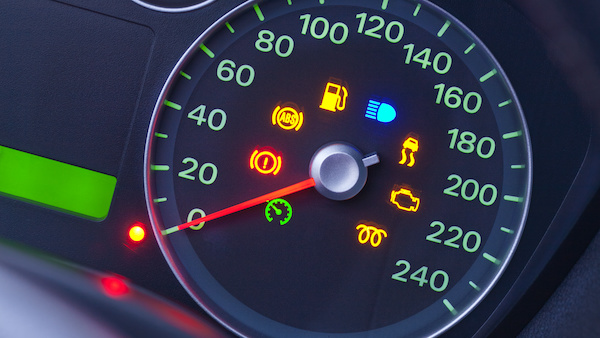
When you're driving, it's important to be aware of the warning lights on your dashboard. They can indicate that something is wrong with your car and needs to be fixed. Let's look at 5 of the most common warning lights: Check Engine Light The check engine light is one of the most important warning lights on your dashboard. It indicates a problem with your car, and you need to take it in for repairs. The light can be caused by various issues, so it's best to get it checked out as soon as possible. Coolant Temperature Light The coolant temperature light comes on when the engine is getting too hot. This can be dangerous, so you'll want to pull over and turn off the car as soon as possible. The light will usually go off once the engine has cooled down. Drive carefully when you take the car home. Once at home, wait until the entire engine has cooled down to investigate the issue. Low Engine Oil Light The low engine oil light usually comes on when there isn't en ... read more
Posted on 2/28/2022
.jpeg)
Coolant, also called antifreeze, is a mixture of ethylene glycol, lubricant, and inhibitors that get added to your vehicle's radiator. It technically becomes the official term "coolant" when the antifreeze is mixed with water. This solution helps maintain a stable operating temperature within the engine and enables your automobile to function optimally in both hot and cold conditions. Below is a full rundown of what exactly coolant/antifreeze does in your vehicle. PREVENTS FREEZING As the name implies, the antifreeze will, of course, prevent the moisture in your car's engine and radiator from freezing in harsh winter conditions. If it does freeze up, it can cause extensive engine damage. PREVENTS OVERHEATING Antifreeze prevents the engine and its components from overheating in a hot climate. An overheating vehicle can lead to irreversible damages and a breakdown on the road. PROPER LUBRICATION Antifreeze acts as a lubricant as it flows through the cooling system ... read more
Posted on 1/31/2022
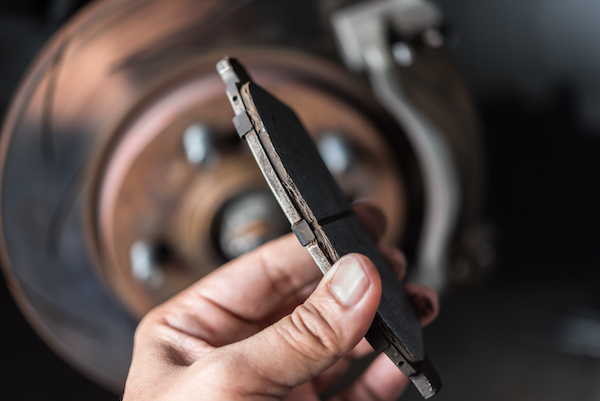
If you have ever pushed on your brake pedals and nothing happens, or it takes a significant amount of pressure to slow down your car, you experienced what is known as "brake fade." Nearly every driver has experienced this type of brake problem, so you shouldn't worry. Because brake fade is a widespread problem for many drivers, it is vital for you to understand the causes of it and what you can do to prevent it from happening. Your vehicle's brake system has many parts at play: brake calipers, pistons, fluid, pads, and rotors. They all work simultaneously for one purpose: to create friction so that your vehicle speed can decrease (and stop). When your car can't produce friction in a timely manner, you can be at risk of colliding with other vehicles or objects and getting hurt. Below are some common problems that cause brake fade: Brake Overheating Most of the time, the primary cause of friction loss is too much heat. Heat accumulates in your brakes when you br ... read more
Posted on 1/24/2022
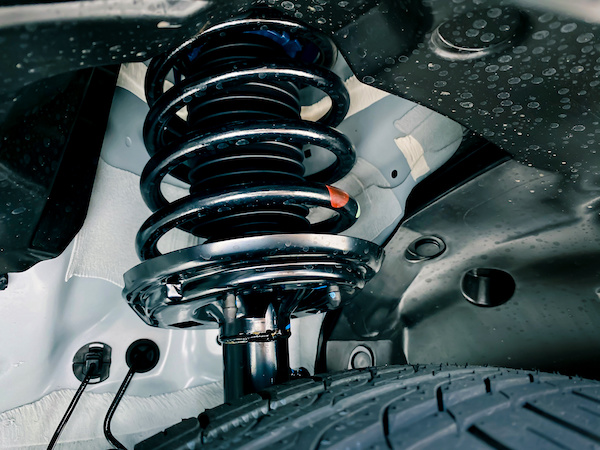
Most people think that their car's suspension system is only there to provide you with a smooth ride on the roads. While that may be true, they serve other purposes too. For instance, they help other key components (engine, transmission, drive train, tires, etc.) from absorbing the effects of shocks and bumps. If your suspension system isn't functioning correctly, you will undoubtedly be able to feel it. Here are some of the most prevalent signs that indicate you need suspension repair: Drifting or Pulling Hard to One Side If your vehicle is drifting more than usual during turns or pulls hard to one side when you drive straight on the highway, you may have a suspension. This problem is worth getting checked out ASAP, as it could also mean you need a wheel alignment. Uneven Treads Harshly irregular tire treads are another symptom of bad suspension (or wheel alignment problem). You need to rotate your tires regularly to even them out over time. Bumpy Ride If it seems ... read more